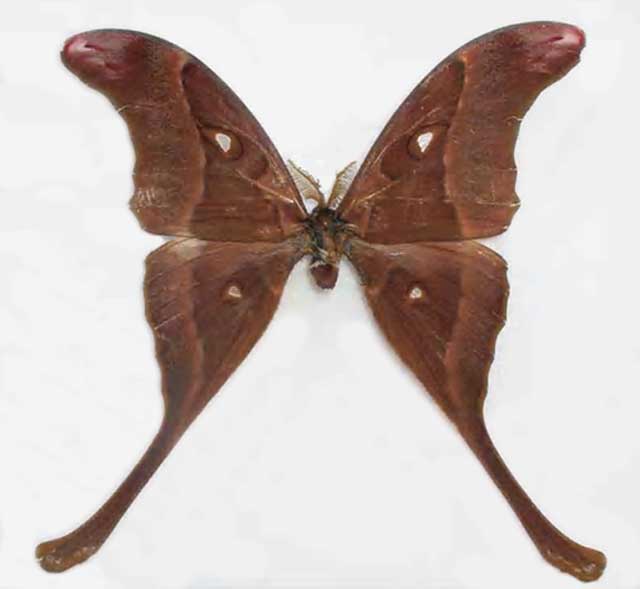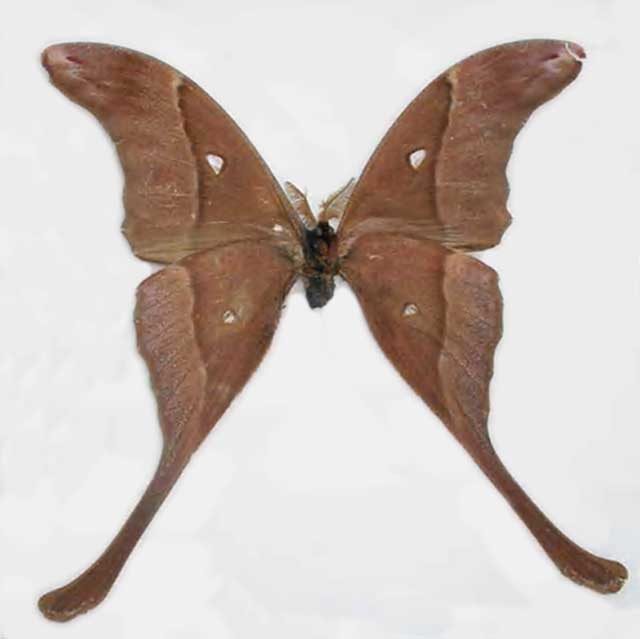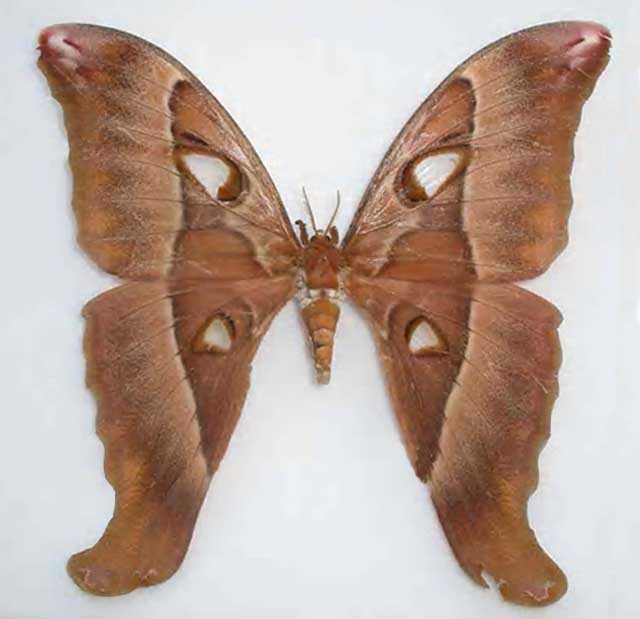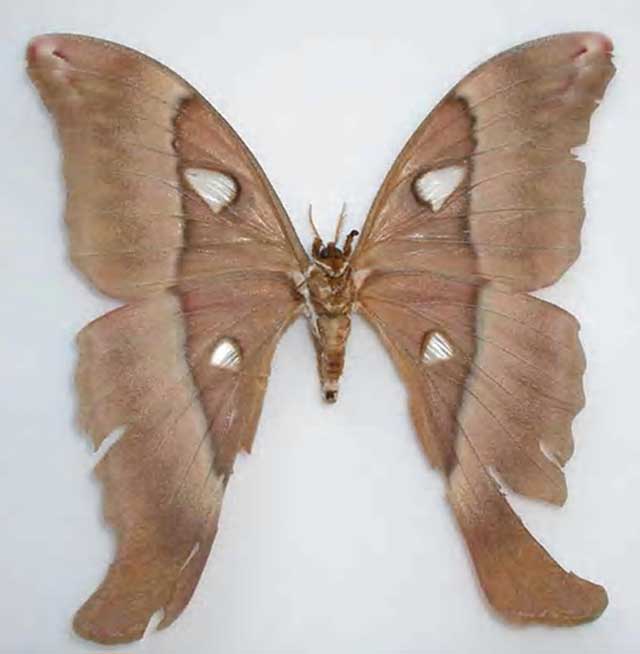Coscinocera jakli
|
|
Updated as per personal communication with Jean Haxaire, November 2009
|
Coscinocera jakli
Naumann, 2009

Coscinocera jakli male, Indonesia, Maluku Province (Northern Moluccas), Obi Island,
south coast, 25 km
405 N of Tapaya village, 1700-1800m, courtesy of Stefan Naumann.
DISTRIBUTION:
Coscinocera jakli (forewing length: males: 98 to 112 mm; females: 118mm) flies
in Indonesia, Maluku Province (Northern Moluccas), Obi Island, south coast, 25 km
405 N of Tapaya village at elevations between 1700m and 1800m.

Coscinocera jakli male (verso), Indonesia, Maluku Province (Northern Moluccas), Obi Island,
south coast, 25 km
405 N of Tapaya village, 1700-1800m, courtesy of Stefan Naumann.
FLIGHT TIMES AND PREFERRED FOOD PLANTS:
Specimens have been taken from June 20, to July 20, 2008 and from
November 20 to December 10, suggesting at least two broods.
Natural larval hosts are unknown at this time, but I suspect they will accept privet.
ECLOSION:
Moths wiggle their way out of double-walled
cocoons and then hang to inflate their wings.

Coscinocera jakli female, Indonesia, Maluku Province (Northern Moluccas), Obi Island,
south coast, 25 km
405 N of Tapaya village, 1700-1800m, courtesy of Stefan Naumann,
digital repairs by Bill Oehlke.

Coscinocera jakli female (verso), Indonesia, Maluku Province (Northern Moluccas), Obi Island,
south coast, 25 km
405 N of Tapaya village, 1700-1800m, courtesy of Stefan Naumann.
SCENTING AND MATING:
Females call in males by emitting pheromones. The males tend to
be slightly smaller than the females, but have more vibrant
colouration and longer "tails".
EGGS, LARVAE, COCOONS AND PUPAE:
Larval Food Plants
It is hoped that this alphabetical listing followed by the common
name of the foodplant will prove useful. The list is not exhaustive.
Experimenting with closely related foodplants is worthwhile.
The new species is dedicated to collector Stanislav "Stanley" Jakl who collects in the Indonesian
archipelago.
Use your browser "Back" button to return to the previous page.
Return to Coscinocera Genus
Return to Main Index



